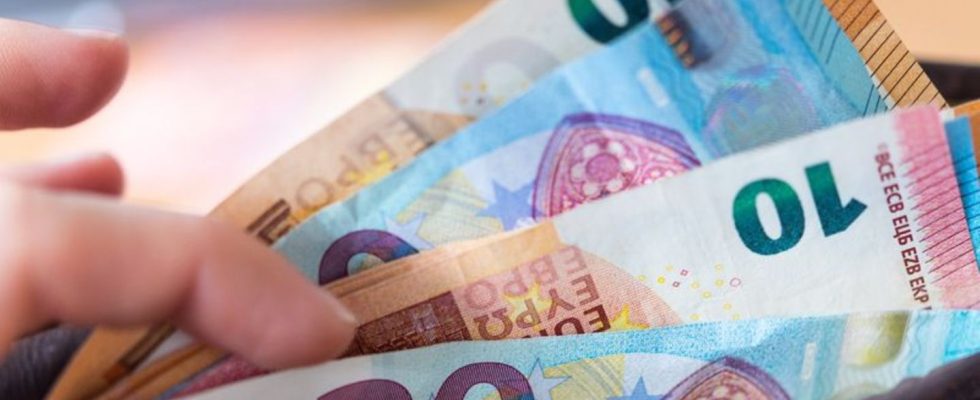Work
There is no big traffic light row over the FDP paper
The FDP wants stricter sanctions on citizens’ money – this leads to massive criticism within the coalition (symbolic image). photo
© Monika Skolimowska/dpa
The FDP is trying to sharpen its profile and presents proposals to relieve the burden on the economy and restrict the welfare state. The SPD criticizes this sharply, but the Greens are holding back.
The coalition partner from the Greens held back from criticizing the FDP’s demands for tougher rules for citizens’ benefit recipients and a zero round of citizens’ benefits. Both the FDP and the Greens pointed out that different parties in a coalition could also have different views. There was initially no sign of a quick end to the traffic lights, as other parties had longed for.
Divorce certificate for the traffic light?
Ahead of a federal party conference this weekend, the FDP executive board decided on a twelve-point plan “to accelerate the economic turnaround.” A draft had already become known at the weekend and had caused anger among the SPD. Speculation immediately arose again as to whether the traffic light would still hold up because of the sometimes completely different positions of the SPD, Greens and FDP. CSU boss Markus Söder spoke in “Bild am Sonntag” about a “divorce certificate for the traffic lights”.
Classic FDP topics repackaged
A closer look at the FDP paper makes it clear: none of this is entirely new. The party reiterates some of its classic positions: tax relief, reductions in bureaucracy and the complete abolition of the solidarity surcharge. In the social sector, the FDP is stepping on the brakes and demanding: no new social benefits, a zero round of citizens’ benefits after the large increase this year, stricter rules for people who do not take a job and an end to the so-called pension at 63. The FDP also speaks out to end the promotion of renewable energies as quickly as possible.
Greens relaxed, SPD annoyed
The last point should actually piss off the Greens. But their party leadership reacted calmly. “We are known to have different views on these issues. This is all known,” said party leader Omid Nouripour in Berlin. The coalition agreement applies. The coalition has achieved a lot together and there is still a lot to do.
The SPD was not quite as calm. Parliamentary group leader Rolf Mützenich had already described the FDP’s demands as “a remnant of the mothballs and not up to date.” On Monday, Federal Labor Minister Hubertus Heil (SPD) called the proposals for tightening citizens’ benefits “nonsense”. The dismantling of workers’ rights or the reduction of pensions has “little to do with economic competence.” He considers the proposals “more like party conference folklore of the FDP, because that will not become reality in the government coalition.”
A coalition, not a merger
The Free Democrats are meeting at a federal party conference this weekend. The positions from the adopted economic paper will be dealt with in more detail in a key proposal, as Secretary General Bijan Djir-Sarai announced.
He made it clear that although the SPD and the Greens are in government, it is a coalition, not a merger, and the party conference at the weekend is not a traffic light: “This is a party conference of the FDP.” It is in the nature of the matter that the economic situation is discussed there and conclusions are then drawn. Addressing the coalition partners, he said: An economic turnaround is necessary. Anyone who wants ecological transformation and functioning social systems needs an economic basis.
Implementation open
It remains unclear what plans the FDP can implement in this government. This will be discussed in the coalition committee, said Djir-Sarai. Things are likely to become more concrete in the upcoming budget discussions, where it will be about what the state will spend its money on in the coming year and in the years to come. They are likely to be at least as difficult as last year. Doing politics together is becoming increasingly difficult for all three traffic light parties, as the pressure to sharpen their own profile increases with the approaching European and state elections this year and the federal election next year. The FDP is particularly under pressure with poll numbers in the federal government between 4 and 5 percent.
Opposition sees traffic light at the end again
The opposition once again sees the traffic light at its end. The former left-wing politician Sahra Wagenknecht made a similar statement to CSU boss Söder and said: “The traffic light divorce papers have long been signed. But the country does not have time for a year of separation until the end of 2025.”
AfD leader Alice Weidel said that if the FDP was actually interested in an economic turnaround, it would have to break up the coalition and clear the way for a new election. CDU General Secretary Carsten Linnemann had also already called on the FDP to “be honest.” Either get out of the traffic light – or implement important measures. The Left called the FDP’s paper “shabby”: The FDP is the party of social coldness, the employer and financial lobby, said party leader Janine Wissler in Berlin and spoke of a “document of social cruelty.”

